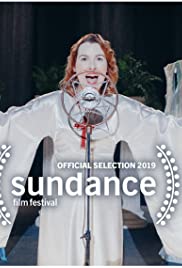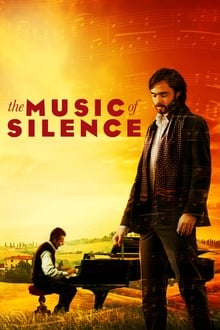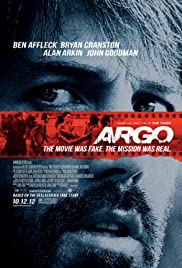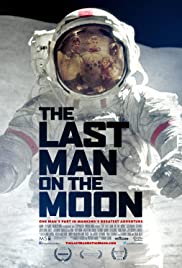
In 1926 America’s most famous evangelist is a woman. And she’s looking for a way out. Fed up with her own success, she gets swept up in her lover’s daydreams about Mexico and finds herself on a wild road trip towards the border. Based on true events. Mostly made up.
You May Also Like

Set against a backdrop of early ’60s London, Telstar is the story of the world’s first independent record producer, Joe Meek. A maverick genius who enjoyed phenomenal success with Telstar – the biggest selling record of it’s time – before bad luck, depression, heartbreak and paranoia led to his downfall.


Documentary looking at the life and work of soul and pop diva Dusty Springfield.

Archive Footage from various Laurel and Hardy films and broadcasts.

In the 1970s and ’80s, Tammy Faye and Jim Bakker rose from humble beginnings to create the world’s largest religious broadcasting network and a theme park, and were revered for their message of love, acceptance, and prosperity.

Explore the 1928 collapse of the St. Francis Dam, the second deadliest disaster in California history. A colossal engineering and human failure, the dam was built by William Mulholland, a self-taught engineer who ensured the growth of Los Angeles by bringing the city water via aqueduct. The catastrophe killed more than 400 people and destroyed millions of dollars of property.

In early 20th-century Naples, a theatrical parody lands beloved thespian and playwright Eduardo Scarpetta in court, facing a malicious lawsuit that could compromise his freedom of expression and the economic security of his extended family—including his son’s, young Eduardo De Filippo.

As the Iranian revolution reaches a boiling point, a CIA ‘exfiltration’ specialist concocts a risky plan to free six Americans who have found shelter at the home of the Canadian ambassador.

Documentarian Richard Morris examines both the onstage and offstage lives of veteran cabaret entertainers John Wallowitch and Bertram Ross. Since 1984, Wallowitch and Ross have been a performing duo, entertaining nightclub audiences with such acid-tongued musical parodies as “If You Don’t Love Me, I’ll Kill Myself — Or Maybe I’ll Kill You” and “Don’t Do To Me What Woody Did To Mia.” Wallowitch and Ross have also been lovers for 30 years, who met while while both were active in the New York creative community; Ross spent close to three decades as a dancer with the Martha Graham company and Wallowitch is a Julliard-trained pianist and songwriter with over 1,000 compositions to his credit. Morris exmines Wallowitch and Ross both as artists and members of the gay community without patronizing or exploiting them in the process.

The 1960s was an extraordinary time for the United States. Unburdened by post-war reparations, Americans were preoccupied with other developments like NASA, the game-changing space programme that put Neil Armstrong on the moon. Yet it was astronauts like Eugene Cernan who paved the uneven, perilous path to lunar exploration. A test pilot who lived to court danger, he was recruited along with 14 other men in a secretive process that saw them become the closest of friends and adversaries. In this intensely competitive environment, Cernan was one of only three men who was sent twice to the moon, with his second trip also being NASA’s final lunar mission. As he looks back at what he loved and lost during the eight years in Houston, an incomparably eventful life emerges into view. Director Mark Craig crafts a quietly epic biography that combines the rare insight of the surviving former astronauts with archival footage and otherworldly moonscapes.

Based on the true story of a black girl who was born to two white Afrikaner parents in South Africa during the apartheid era.

Francesco Totti retraces his entire life while watching it on the silver screen together with the audience. Images and emotions flow among key moments of his career, scenes from his personal life and memories he has never shared before.